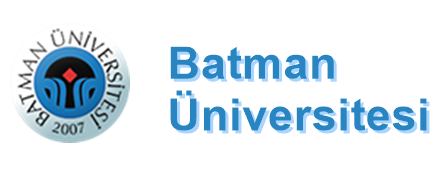ETHICAL PRINCIPLES AND PUBLICATION POLICY
The Declaration of Publication Ethics and Malpractice is based on the Code of Conduct and Best-Practice Guidelines for Journal Editors developed by the Committee on Publication Ethics (COPE, 2011).
DUTIES OF EDITORS AND THE EDITORIAL BOARD
Fair Practice and Editorial Independence
Editors evaluate submitted manuscripts solely on their academic merit—such as significance, originality, methodological soundness, and clarity—and their relevance to the scope of the Batman University Journal of Global Energy. The evaluation is carried out without regard to the authors’ race, gender, sexual orientation, ethnic background, citizenship, religious belief, political views, or institutional affiliation. All editorial decisions are made independently of government policies or institutional interests. The Editor-in-Chief has full authority over the editorial content and publication timeline.
Confidentiality
Editorial staff must not disclose any information about a submitted manuscript to anyone other than the corresponding author, reviewers, potential reviewers, and the publisher.
Disclosure and Conflicts of Interest
Editors shall not use unpublished information from a submitted manuscript for personal research without the author’s written consent. Privileged information obtained through peer review must be kept confidential and not used for personal benefit. Editors must withdraw from the evaluation process in case of any conflict of interest related to the authors, institutions, or funding bodies involved. All stakeholders must disclose potential conflicts, and if such issues are identified post-publication, necessary actions such as corrections or retractions should be taken.
Publication Decisions
Editors ensure that every submission undergoes a rigorous peer-review process involving at least two expert reviewers. The decision to publish is based on the manuscript’s contribution to the field, reviewer feedback, and compliance with legal and ethical standards. Editorial decisions may be made in consultation with the editorial board or reviewers.
DUTIES OF REVIEWERS
Contribution to Editorial Decisions
Peer reviews assist editors in making publication decisions and help authors improve their manuscripts through constructive feedback. This process is essential to scientific communication and scholarly integrity.
Timeliness
Reviewers who feel unqualified to evaluate a manuscript or unable to provide a timely review must inform the editor and withdraw from the review process.
Confidentiality
All manuscripts received for review must be treated as confidential documents. They should not be shared or discussed with others without the editor’s permission. This also applies to reviewers who decline the review invitation.
Objectivity
Reviews must be conducted objectively. Personal criticism of the author is inappropriate. Comments should be clearly expressed and supported by rational arguments to assist the author in improving the work.
Acknowledgment of Sources
Reviewers should identify any relevant published work not cited by the authors. They should notify the editor of any significant similarity or overlap with other works. Similarity detection software may be used to support this task.
Conflicts of Interest
Reviewers must decline the review if they have any competing interest with the authors or institutions. They must not use unpublished materials from the manuscript for personal purposes. These obligations also apply to reviewers who decline invitations.
DUTIES OF AUTHORS
Reporting Standards
Authors must provide an accurate and honest description of their work and its significance. The manuscript should include sufficient detail and references to allow replication. Review articles must be comprehensive, objective, and clearly identified as such. Fabrication or falsification is considered unethical and unacceptable.
Originality and Plagiarism
Manuscripts must be original. If other authors’ works or statements are used, they must be properly cited. All forms of plagiarism—including verbatim copying, paraphrasing without acknowledgment, or claiming results of others as one's own—constitute unethical publishing behavior.
Multiple and Redundant Submissions
Submitting the same manuscript to more than one journal simultaneously is unethical and unacceptable. Authors should not submit previously published material without proper justification and permission.
Authorship Criteria
Only individuals who meet the following criteria should be listed as authors:
-
Substantial contribution to the conception, design, execution, or interpretation of the research;
-
Drafting or critical revision of the manuscript for intellectual content;
-
Final approval of the manuscript and agreement to be accountable for its content.
Contributors who do not meet these criteria should be acknowledged, not listed as authors. The corresponding author must ensure proper authorship representation and obtain consent from all co-authors.
Disclosure of Conflicts of Interest
Authors must disclose any financial or non-financial conflicts of interest that may influence their work at the earliest stage (typically during submission).
Acknowledgment of Sources
All sources that influenced the research should be properly cited. Privately obtained information (e.g., through interviews or correspondence) must not be used without explicit written permission from the source.
Participation in Peer Review
Authors are expected to engage with the review process. If revisions are requested, authors must respond constructively and resubmit the revised manuscript within the specified time.
Significant Errors in Published Work
If an author discovers an error or inaccuracy in their published work, they are obligated to inform the journal promptly and cooperate in correction or retraction. Editors may also take action if third-party concerns are raised about the published content.
DISCLAIMER
The editorial board and editors of Batman University Journal of Global Energy are not responsible for the opinions expressed by authors. Responsibility for the content, accuracy, and originality of published articles lies solely with the authors. The evaluation and publication of submitted manuscripts rely entirely on the decisions of peer reviewers and editors.
Reference
Committee on Publication Ethics (COPE). (2011, March 7). Code of Conduct and Best-Practice Guidelines for Journal Editors. Retrieved from: [COPE Website]
